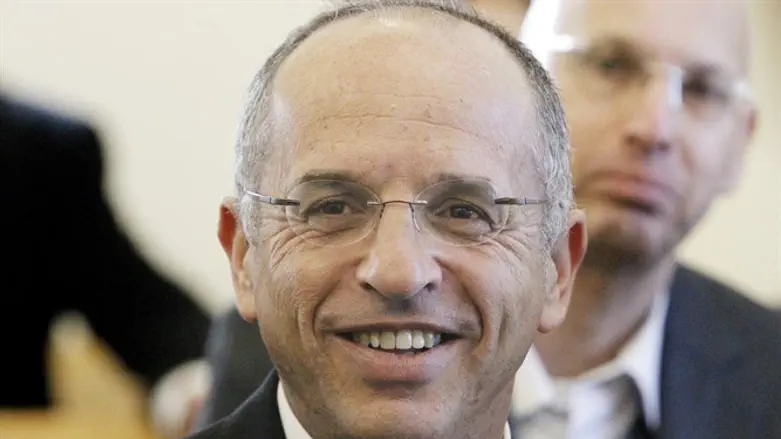
A week after the public outcry over the Supreme Court’s refusal to send a representative to the state ceremony in Gush Etzion celebrating 50 years of renewed Jewish presence in Judea and Samaria, it appears that a justice of the court had attended the ceremony, after all.
Last week, Supreme Court judges had rejected a petition of the Regavim organization demanding that a representative of the court participate in the official jubilee celebration in Gush Etzion marking the Jewish return to Judea and Samaria.
The court rejected the petitioner's claim that court participation was obligatory due to the event’s status as an official state ceremony, arguing that sending a representative could be interpreted as an overt political statement contrary to the presumed non-partisan nature of the judiciary.
“The decision not to take part in the controversial event which could be interpreted as political in character is necessary in order to maintain the independent status of the judiciary, and in order to maintain public trust in the judicial system,” the judges ruled.
The decision was met with condemnation from government officials, including Justice Minister Ayelet Shaked, who wrote a letter to Chief Justice Miriam Naor asserting that the court’s decision would backfire.
"Even though you wanted to avoid a political dispute, you missed achieving that goal, and the Movement for Quality Government correctly wrote in a letter to Your Honor today that the matter will most likely play into the hands of those who wish to portray the court as acting in the political sphere, with good intentions leading to bad consequences.”
Zionist organization Regavim, which filed the petition, responded that “Despite the Court’s disappointing but not unexpected decision, our petition achieved its purpose by spotlighting the problematic conduct of Israel’s judiciary. This decision is one more example of Supreme Court rulings that blur the boundaries between the three branches of government.”
“In this most recent instance, the Court has once again eroded the authority of the executive and legislative branches of Israel’s government, dealing a mortal blow to the concept of the division of powers upon which democratic government is based.”
“At the same time,” the organization added, “the Court has caused serious damage to the public’s faith in the impartiality of Israel’s judicial system.”
Nevertheless, Army Radio reported this morning, Tuesday, that a court justice had, in fact, been present at the ceremony, despite the court’s decision - although not in an official capacity.
According to the report, Justice Noam Sohlberg - himself a resident of Gush Etzion - had attended the ceremony as a private citizen, viewing the ceremony with his family from within the general crowd rather than from within the ranks of honored governmental figures.
The report also indicated that Chief Justice Naor knew in advance about Sohlberg’s intention to attend, but said that she “would not interfere with his decision,” apparently wishing to avoid an additional confrontation after all that had already transpired.